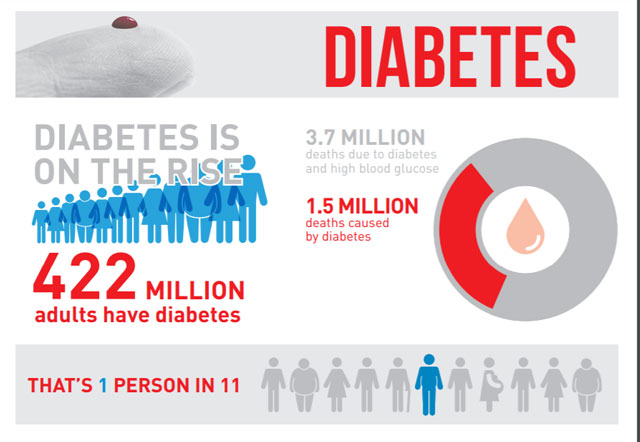
Nairobi, Kenya | Xinhua | Diabetes is taking a toll on Africa’s population due to rapid urbanization, sedentary lifestyle, poor dietary habits, and alcoholism, said a senior World Health Organization (WHO) Tuesday during World Diabetes Day.
Matshidiso Moeti, the WHO regional director for Africa, said the continent has 24 million adults living with diabetes, and the number is expected to rise to 55 million by 2045.
According to Moeti, diabetes was responsible for 416,000 deaths in Africa in 2021 and is projected to be one of the leading causes of death in the continent by 2030, unless communities adopt healthier lifestyles such as regular exercise.
“Diabetes affects every part of the body and if not correctly managed, people living with the disease can develop debilitating and life-threatening complications,” Moeti said in a statement released in Nairobi, the Kenyan capital.
She noted that diabetes has exerted economic strain on families, stressing that regular checkups combined with quality treatment and care are key to minimizing fatalities linked to the disease.
Moeti revealed that 54 percent of people living with diabetes in Africa are still undiagnosed and are at risk of succumbing to the disease due to the late onset of life-prolonging medication like insulin.
“This speaks to the need for greater awareness of the disease and the capacity to recognize and diagnose diabetes at a level of care that is easily accessible to all in our communities,” Moeti remarked.
She said that the WHO has developed tools for combating noncommunicable diseases including diabetes for the African region that emphasize timely diagnosis and treatment.
The WHO official urged governments to invest in diabetes prevention tailor-made for local communities including diets rich in fiber and vitamins, awareness against tobacco and alcohol use, physical exercises, and availing life-saving drugs to patients.
In addition, Moeti said governments should train healthcare workers on diabetes management, and enhance the disease surveillance and reporting of new cases. ■
 The Independent Uganda: You get the Truth we Pay the Price
The Independent Uganda: You get the Truth we Pay the Price





